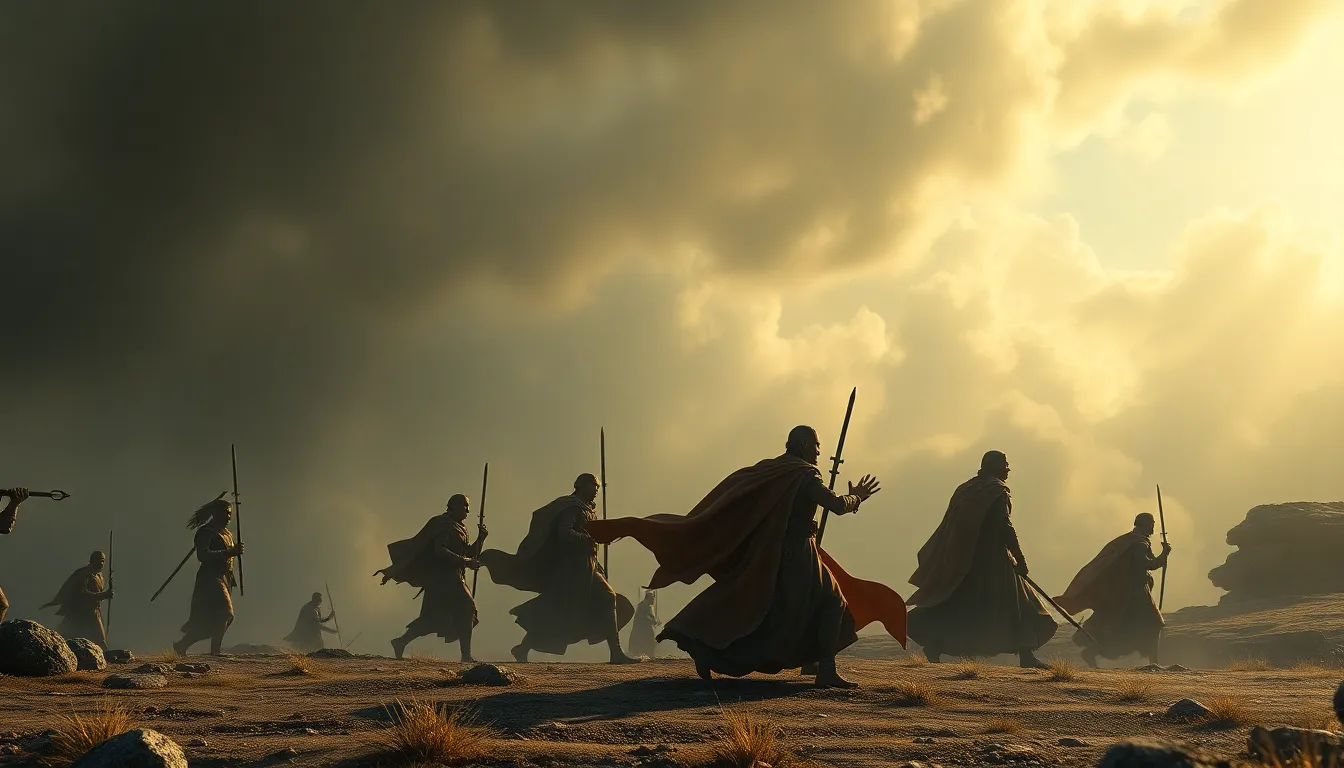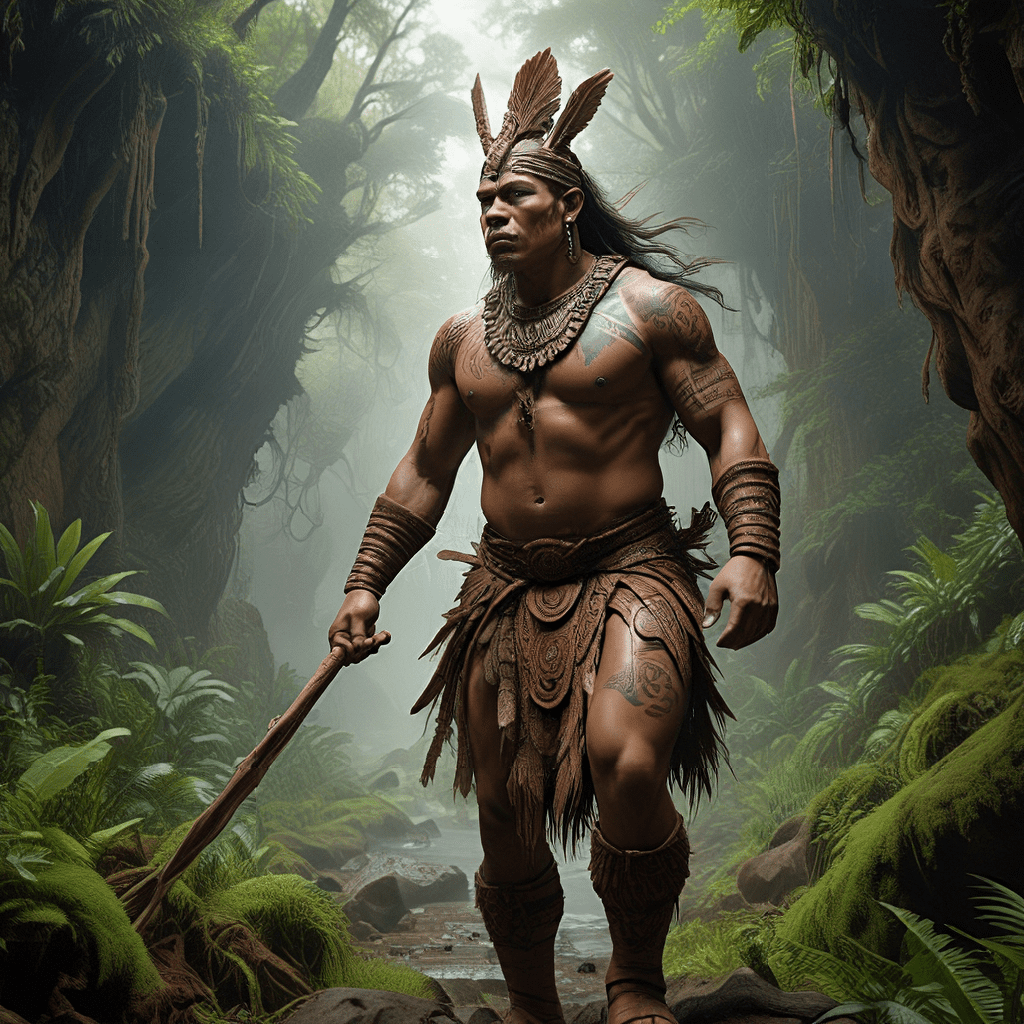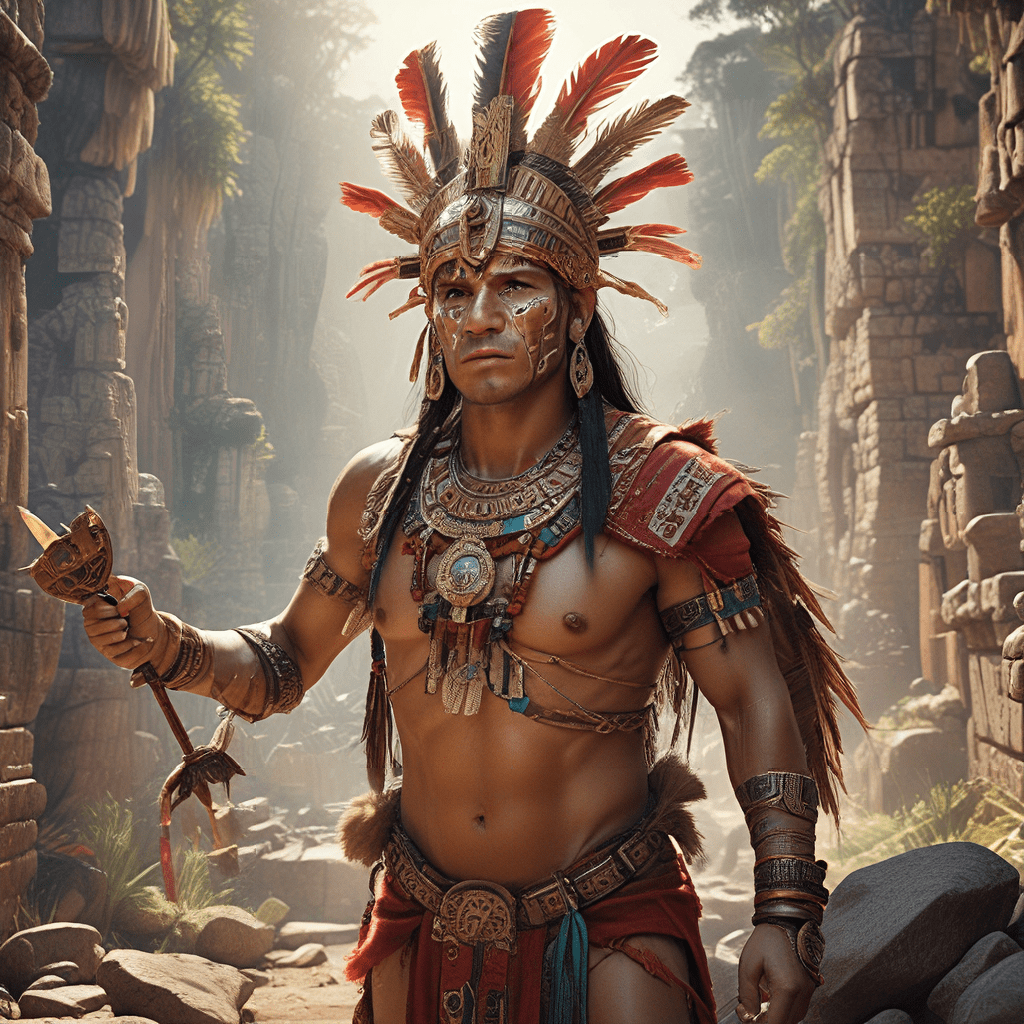The Role of Myth in Shaping Cultural Heroes
1. Introduction to Myth and Cultural Heroes
Myth is a foundational element of human culture, serving as a lens through which societies interpret their experiences, beliefs, and values. Defined broadly, myths are traditional stories that often involve supernatural beings or events, and they carry profound meanings that reflect the ideals of a culture. They are not merely fanciful tales; rather, they encapsulate the moral frameworks and existential questions that societies grapple with.
Cultural heroes emerge from these myths, representing the epitome of virtues admired within a community. These figures—whether they are gods, demigods, or extraordinary humans—serve to inspire and guide individuals, offering models for behavior and aspiration. The impact of cultural heroes is significant, as they unify communities through shared stories and values, and they provide a sense of identity and purpose.
2. Historical Context of Myths and Heroes
Throughout history, myths and heroes have played pivotal roles in various civilizations. In ancient Greece, for instance, heroes like Hercules and Achilles were celebrated for their extraordinary feats and moral dilemmas. Similarly, in Hindu mythology, figures like Rama and Krishna are revered not only for their valor but also for their adherence to dharma (duty).
The evolution of myth reflects the changing values and struggles of societies. As cultures interact and evolve, their myths adapt, merging elements from different traditions. For example, the Norse myths of Scandinavia share similarities with the Celtic tales of Ireland, showcasing how heroism is interpreted through diverse cultural lenses.
3. Common Archetypes of Cultural Heroes
Myths often feature recurring archetypes of heroes, each embodying different societal values. Some of the most common archetypes include:
- The Warrior: A figure who fights against evil or injustice, often overcoming great odds.
- The Trickster: A clever and cunning character who uses wit to challenge authority and societal norms.
- The Savior: A hero who rescues others, often at great personal sacrifice, symbolizing hope and redemption.
These archetypes resonate deeply with societal values, reflecting what communities admire and aspire to. The hero’s journey often illustrates the struggle between good and evil, reinforcing the importance of moral integrity and resilience.
4. The Psychological Impact of Myths on Hero Creation
Carl Jung’s theory of archetypes and the collective unconscious underscores the psychological significance of myths. According to Jung, archetypes are innate, universal symbols that manifest in myths across cultures, shaping our understanding of ourselves and our place in the world.
Myths help individuals forge their identities by providing narratives that resonate with personal and communal experiences. They serve as blueprints for behavior and values, guiding people in their interactions and aspirations. The heroes within these myths become symbols of hope, courage, and agency, influencing the psychological development of individuals and societies alike.
5. Myths as Tools for Moral and Ethical Instruction
Myths often serve as vehicles for moral and ethical instruction, conveying important lessons through the stories of heroes. For instance, the tale of King Arthur and the Knights of the Round Table teaches values such as chivalry, loyalty, and justice. Similarly, the story of the Buddha emphasizes compassion and the pursuit of enlightenment.
Case studies of specific myths highlight their teachings:
- The Odyssey: Teaches the value of perseverance and cleverness through Odysseus’s journey home.
- The Tortoise and the Hare: Illustrates that slow and steady wins the race, emphasizing the importance of determination over arrogance.
These stories not only entertain but also reinforce cultural values and encourage ethical behavior within communities.
6. The Function of Cultural Heroes in Contemporary Society
In contemporary society, cultural heroes continue to play essential roles in reflecting current issues and aspirations. Modern heroes, such as activists, scientists, and community leaders, embody qualities that resonate with today’s challenges, such as social justice, environmental sustainability, and innovation.
Examples of contemporary figures who exhibit mythic qualities include:
- Malala Yousafzai: Advocating for girls’ education and standing against oppression.
- Greta Thunberg: A climate activist symbolizing the fight against environmental degradation.
These figures not only inspire action but also embody the ideals that many aspire to achieve, bridging the gap between myth and reality.
7. Myth and the Hero’s Journey: A Structural Analysis
Joseph Campbell’s concept of the monomyth, or the hero’s journey, provides a structural framework for understanding the narrative arc of heroes across cultures. This structure includes stages such as:
- The Call to Adventure: The hero is invited to leave their ordinary world.
- The Trials: The hero faces challenges that test their resolve and character.
- The Return: The hero returns transformed, often bringing knowledge or healing to their community.
This model not only helps analyze existing myths but also aids in creating new narratives that resonate with audiences, emphasizing the universal nature of the hero’s journey.
8. The Influence of Technology and Media on Myth Creation
The digital age has transformed how myths are created and disseminated. Movies, literature, and social media play significant roles in shaping modern cultural heroes. Films like the Marvel Cinematic Universe have reimagined classical hero archetypes, bringing them to new generations.
Moreover, social media platforms allow for the rapid sharing of stories and the creation of new heroes in real-time. Influencers and activists can become modern mythic figures, shaping public discourse and inspiring movements with their narratives.
9. Critiques of Myth and Heroism
While myths and heroism can serve positive functions, they also have darker aspects. Hero worship can lead to unrealistic expectations and the glorification of individuals who may not embody the virtues they represent. Additionally, myths can perpetuate stereotypes and exclusion, reinforcing societal divides.
Critiques of myth often focus on how certain figures are mythologized at the expense of others, questioning who gets to be a hero and who is marginalized in these narratives.
10. Conclusion: The Enduring Power of Myth in Defining Heroes
In conclusion, myths play a crucial role in shaping cultural heroes, providing frameworks for understanding values, identity, and morality. From ancient civilizations to modern society, the archetypes of heroes continue to resonate deeply, reflecting our collective aspirations and challenges.
Understanding myths is essential in contemporary culture, as it allows us to navigate the complexities of identity, ethics, and heroism in a rapidly changing world. As we look to the future, the enduring power of myth will undoubtedly continue to define and inspire the heroes of tomorrow.




